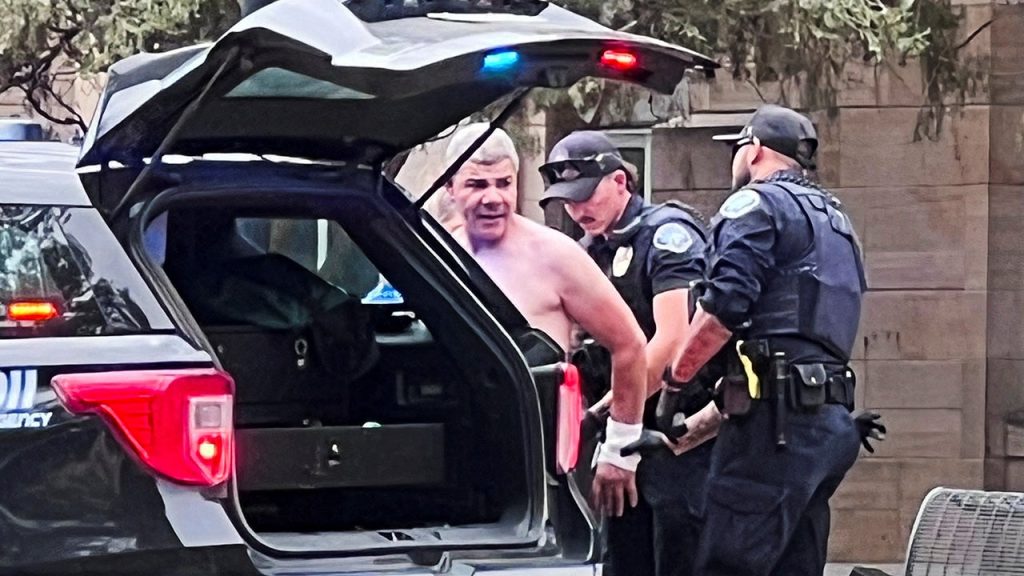A recent terror attack in Boulder, Colorado highlights a disturbing increase in antisemitic acts across the United States. The attack, committed by 45-year-old Mohamed Sabry Soliman, resulted in multiple injuries, with eight individuals suffering from burn injuries after explosives were used during a pro-Israel event. Soliman faces federal hate crime charges, while experts suggest that societal decay may be driving this spike in antisemitism.
| Article Subheadings |
|---|
| 1) Overview of the Boulder Terror Attack |
| 2) Background on Antisemitism in the U.S. |
| 3) The Profile of the Attacker |
| 4) The Victims and Their Stories |
| 5) Responses from Authorities and Community Leaders |
Overview of the Boulder Terror Attack
On June 1, 2025, a horrific terror attack unfolded in Boulder, Colorado, targeting a pro-Israel group called “Run for Their Lives.” Attendees were gathered on Pearl Street to advocate for the release of Israeli hostages held by Hamas when the situation took a deadly turn. The attacker, Mohamed Sabry Soliman, allegedly threw Molotov cocktails into the crowd, resulting in injuries to eight individuals, with at least one person reported in critical condition.
Witnesses described a scene of chaos as the explosives detonated among a peaceful gathering. The attack has drawn national attention, raising alarms about a rising sentiment of antisemitism and violence targeting Jewish communities. Such incidents are not isolated; they reflect a broader trend influencing societal attitudes toward Jews and Israel.
Background on Antisemitism in the U.S.
Antisemitism has experienced a notable increase in the United States since 2020, further exacerbated by recent geopolitical events. According to the Anti-Defamation League (ADL), Jewish Americans represent merely 2% of the U.S. population; yet, they accounted for 15% of all reported hate crimes in 2023, signifying a disproportionate targeting of this community. The notable rise in antisemitic incidents aligns with previous patterns but has risen sharply in the last 12 months.
As tensions in the Middle East flare, many individuals are channeling their grievances toward Jewish communities domestically, often engaging in violent rhetoric and actions. Experts underscore that such behavior indicates a troubling societal decay, as highlighted by Ruthie Blum, a senior contributing editor at Jewish News Syndicate, who argues that it signifies deeper issues regarding societal cohesion and empathy.
The Profile of the Attacker
Mohamed Sabry Soliman, the individual accused of orchestrating the Boulder attack, has been charged with several offenses, including attempted first-degree murder and federal hate crime charges. Reports indicate that Soliman is an Egyptian national living in the U.S. illegally after overstaying a work visa. According to law enforcement officials, Soliman had spent time researching explosive-making techniques on YouTube and had been planning the attack for approximately a year.
Investigators found evidence in his vehicle, including materials consistent with Molotov cocktails and writings with phrases such as “Israel” and “Palestine.” During his arrest, Soliman allegedly expressed a desire to “kill all Zionist people,” revealing his motivations rooted in radical ideology. This radicalization process has become alarming, particularly among those like Soliman, who may not display conventional affiliations with terrorist groups yet adopt similar violent beliefs.
The Victims and Their Stories
The attack has deeply impacted the victims, aged between 52 and 88 years. While none of the victims have succumbed to their injuries, many are struggling with severe burns and trauma from the event. Community members have rallied around them, offering support as they recover from both physical and emotional scars.
Some victims were active members of the pro-Israel advocacy group, dedicating their time to raising awareness about Israeli hostages in Gaza. Reports have emphasized the resilience of the victims, who express a commitment to continuing their activism despite the traumatic experience. Community leaders stress that the incident is a reminder of the ongoing threats facing Jewish Americans and the urgent need for stronger protective measures.
Responses from Authorities and Community Leaders
The Boulder attack has prompted an outcry from various officials and community leaders, condemning the act of violence. Local authorities have vowed to strengthen security measures, particularly during public gatherings involving the Jewish community. Politicians across the spectrum have spoken out against antisemitism, urging citizens to stand united against hate.
Community leaders emphasize the importance of education and awareness in combating antisemitism. Initiatives aiming at fostering understanding and tolerance among different groups are being proposed as vital pathways to improve societal relations and reduce incidents such as the Boulder attack. Community forums are being organized to provide platforms for discussion on these critical issues.
| No. | Key Points |
|---|---|
| 1 | The Boulder attack reflects a disturbing rise in antisemitic incidents across the U.S. |
| 2 | Victims suffered serious injuries from explosives thrown during a peaceful gathering. |
| 3 | Mohamed Sabry Soliman faces multiple charges, indicating the severity of the crime. |
| 4 | Antisemitism remains prevalent, indicated by statistics showing a disproportionate number of hate crimes against Jewish Americans. |
| 5 | Community leaders and officials are calling for greater unity and education to combat the rise of hate. |
Summary
The Boulder terror attack is not just a single incident but a symptom of a broader plague of rising antisemitism in the United States. As communities rally to support the victims of this violent act, it becomes increasingly clear that societal attitudes toward Jews and Israel need urgent examination. Through unity, education, and awareness, the hope is to combat this hate and promote a culture of understanding and coexistence.
Frequently Asked Questions
Question: What motivated the Boulder attack?
The attacker, Mohamed Sabry Soliman, reportedly held radicalized beliefs and expressed a desire to kill “Zionist people,” reflecting antisemitic ideologies prevalent in some groups.
Question: How many people were injured during the attack?
Eight individuals sustained injuries, primarily from burns caused by the explosives thrown into the crowd.
Question: What are local authorities doing in response to the attack?
Local authorities are strengthening security measures at public gatherings and promoting community discussions to foster understanding and tackle antisemitism.
